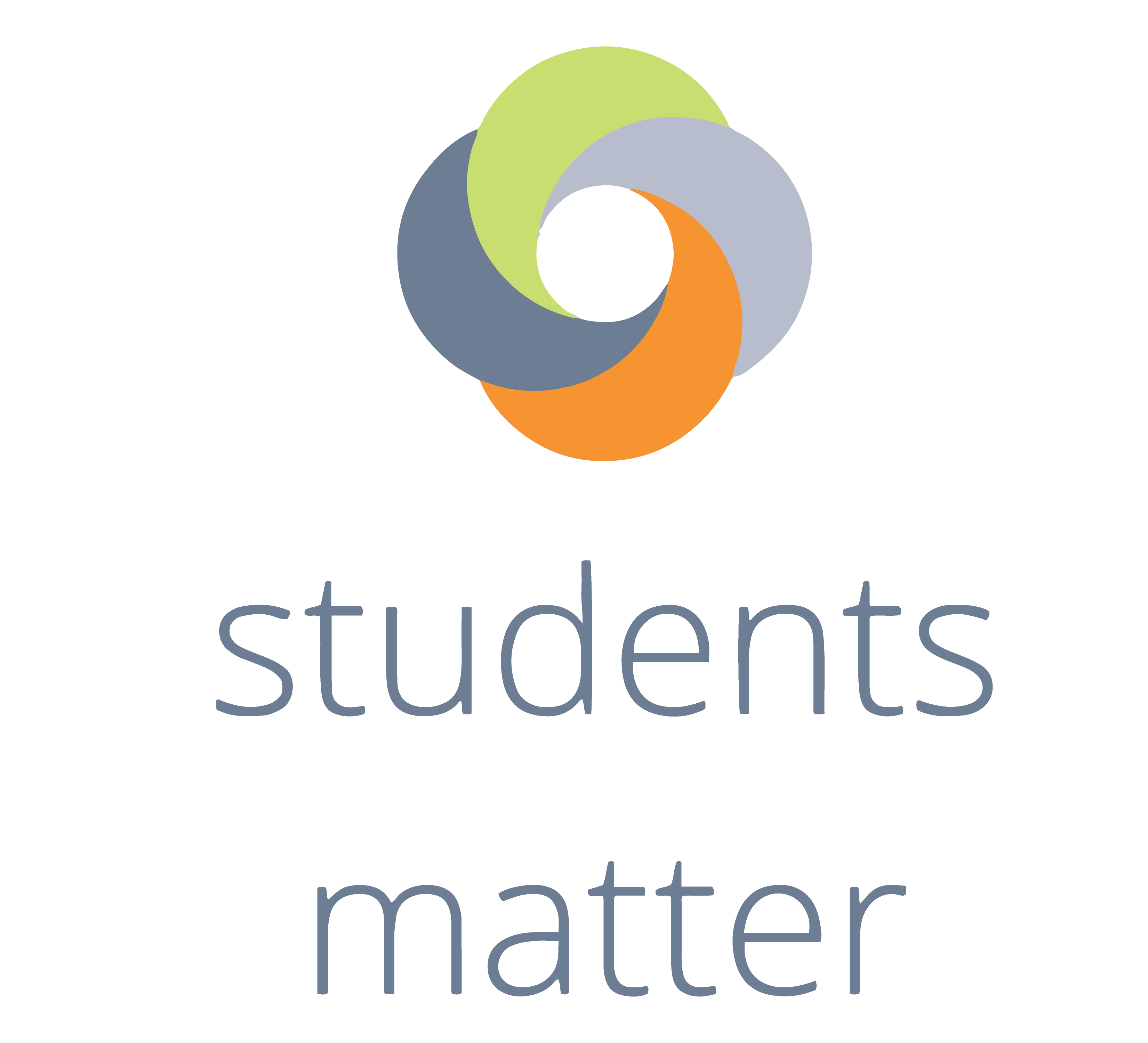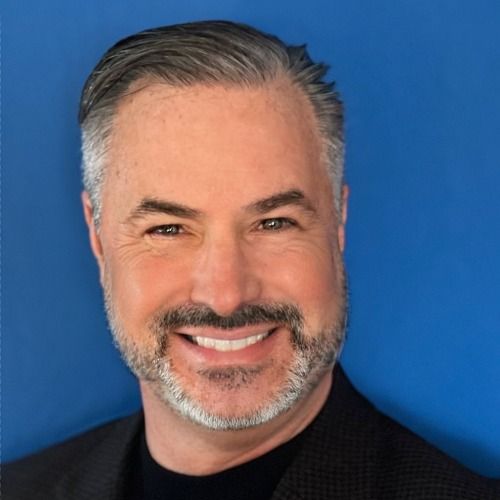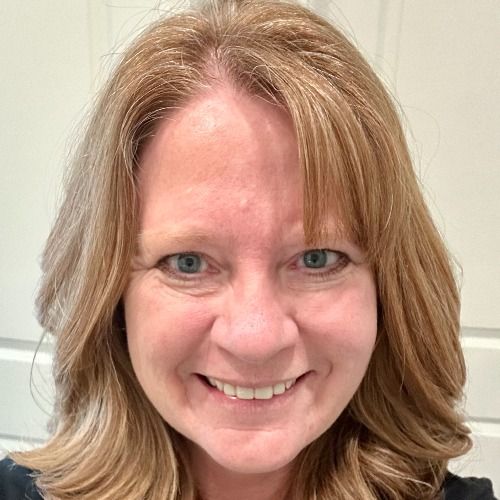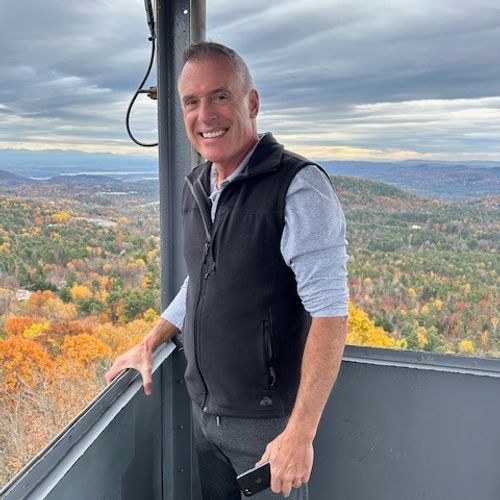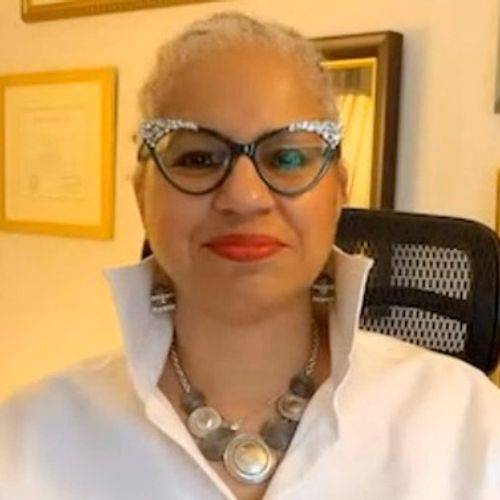The Disconnect in Education: Bridging the Gap Between Teachers and Students
The principal focus of this discourse revolves around the concept of the counter dismissal narrative, an innovative framework that seeks to illuminate the often-overlooked voices within educational spaces. Our special guest, Ruben Britt Jr., esteemed author and educator, joins us to delve into the intricacies of his recently published work, "Don't Dismiss My Story: The Tapestry of Colonized Voices in White Space," co-authored with our very own Dr. Alicia S. Monroe. Throughout our conversation, we engage in a profound exploration of the systemic disconnect between educators and students, particularly those from marginalized backgrounds, and the urgent necessity for educators to cultivate genuine connections and understanding. The dialogue navigates the critical importance of self-examination in educational practice, emphasizing that true empathy and connection are foundational to fostering a nurturing learning environment. As we traverse these complex themes, we invite listeners to reflect on their roles within the educational ecosystem and consider actionable steps toward more inclusive and compassionate teaching practices.
A profound exploration of the intersection between education and marginalized voices permeates this episode, as we engage with Ruben Britt Jr., a distinguished author and educator. The discourse centers upon his co-authored work, 'Don't Dismiss My Story: The Tapestry of Colonized Voices in White Space,' which serves as a poignant narrative against the backdrop of systemic injustices faced by students from diverse backgrounds. The conversation delves into the concept of 'counter dismissal narratives,' a term that encapsulates the necessity to acknowledge and amplify voices that have historically been relegated to the periphery of educational discourse. Through Britt's insights and anecdotes, the episode underscores the urgent need for educators to cultivate a deeper understanding of cultural nuances and the implications of their pedagogical practices. We dissect the disconnect often observed between educators and students, particularly in contexts where students' experiences are invalidated or overlooked. The narrative encourages a paradigm shift towards a more inclusive, empathetic approach that honors the stories of all students, emphasizing that their experiences are not merely anecdotal but are integral to the fabric of an equitable educational experience.
Takeaways:
- In this episode, we explore the significance of counter dismissal narratives in education.
- The conversation focuses on how teachers and counselors often disconnect from their students' needs.
- We examine the systemic issues that lead to the dismissal of marginalized voices in education.
- The episode highlights the importance of self-examination and communicative action in fostering empathy.
- Listeners are encouraged to consider how biases are established and perpetuated in educational settings.
- We discuss the necessity of understanding cultural differences to effectively support all students.
To purchase a copy of their text, use the link below.
https://www.amazon.com/Dont-Dismiss-My-Story-Colonized/dp/1793566143
Other links referenced in this episode:
Transcript
What is a counter dismissal narrative and how is this specific one an example of the heart, passion, the spirit and the soul?
Speaker A:Find out.
Speaker A:A new episode of the Wheelhouse begins right now.
Speaker A:Thank you so much for taking time out of your busy day to give us a listen.
Speaker A:Season nine features a panel of four like minded friends and colleagues.
Speaker A:Cathy Mone, Michael Pipa, Dr.
Speaker A:Alicia Munro, and yours truly.
Speaker A:You know, we've opened this conversation this season to think about empowering educators to cultivate Hope.
Speaker A:In this sixth episode, we welcome Reuben Britt Jr.
Speaker A:Author, Lecturer, Master career facilitator and educator.
Speaker A:Britt has written a number of articles and has been a contributor for such publications as Obstacle Magazine, Black Enterprise, the Philadelphia Inquirer, the Atlantic City Press, and the Black Collegian magazine.
Speaker A:A former teacher in the Boston public school system and a nationally recognized expert on issues related to career coaching and education, Ruben has worked as a consultant for the U.S.
Speaker A:department of Education, the Educational Testing Service, the New Jersey Department of Higher Education, and several colleges and community organizations.
Speaker A:In this two episode conversation, we'll focus on his recently published book, Don't Dismiss My the Tapestry of Colonized Voices in White Space.
Speaker A:Written with our very own Dr.
Speaker A:Alicia Munro.
Speaker A:You know, at the end of the day, what we do for students is even bigger than cultivating hope or killing dreams.
Speaker A:For some, it's a matter of life and death.
Speaker A:You know, this was such a great conversation.
Speaker A:So great I had to put it and make it into two episodes.
Speaker A:There were so many intriguing ideas that we brought to the space.
Speaker A:I hope you'll listen to the entire episode to hear the details.
Speaker A:But among those that I think you'll find really intriguing.
Speaker A:We often see teachers and counselors disconnected from students.
Speaker A:There's the elephant in the room.
Speaker A:Teacher training.
Speaker A:How do we understand people from various cultures?
Speaker A:You know, marginalized voices often get purposely dismissed, pushed to the periphery.
Speaker A:How many courses does it take just to be human?
Speaker A:And there's a huge difference between power over and power with.
Speaker A:Together, let's cultivate hope for each and every student.
Speaker A:And now episode six with our special guest Reuben Britt Jr.
Speaker A:You're not gonna wanna miss this.
Speaker A:Take a listen.
Speaker A:Good morning, I'm Grant Chandler and welcome back to episode six of the Wheelhouse.
Speaker A:I'm super excited to have this conversation today.
Speaker A:And you know, on the we record in the Wheelhouse, it's always amazing to bring together all my favorite humans in one space.
Speaker A:So I just going to say good morning to Kathy Mone, Michael Pipa and Dr.
Speaker A:Alicia Monroe.
Speaker A:Welcome back.
Speaker B:Good morning.
Speaker C:Good morning.
Speaker B:Oh my goodness.
Speaker B:We were off a little bit there.
Speaker B:Hello.
Speaker A:I know I needed to get my.
Speaker D:Baton and we'll do it.
Speaker B:Good to see all of you.
Speaker A:It is great to see all of you.
Speaker A:Happy recording day.
Speaker A:We always love the wheelhouse in the recording studio.
Speaker C:Yay.
Speaker D:Yay.
Speaker A:So today is just a really cool day because we're gonna.
Speaker A:Alicia is gonna kind of play two roles today.
Speaker A:Cause she's a regular panelist, but she's also.
Speaker A:We're gonna feature her work and the work of our special guest today.
Speaker A:So I am super glad to welcome Reuben Britt to the Wheelhouse.
Speaker A:He is the co author with Dr.
Speaker A:Monroe on this amazing, amazing book that is available from Cognela and it's also available on Amazon and it's called Don't Dismiss My Story, the Tapestry of Colonialized Voices in White Space.
Speaker A:So first, before we jump off, Ruben, welcome, welcome, welcome to the Wheelhouse.
Speaker D:Oh, thank you.
Speaker D:It's an honor to be a guest on Wheelhouse and like to say hello to Mike and Kathy and of course, good morning, Dr.
Speaker D:Naysha Munro.
Speaker C:Good morning.
Speaker A:So super excited.
Speaker A:And I just want to start with just a couple of broad questions.
Speaker A:And then I know we're going to focus in on some incredibly powerful ideas from this book.
Speaker A:So I just want to ask probably a question that the two of you get asked all the time.
Speaker A:Why'd you write this book?
Speaker C:So, Dr.
Speaker C:Chandler, Grant, Mike and Kathy, this is truly a work of heart, a work of passion, a work of spirit and soul.
Speaker C:Reuben and I worked on this for six years.
Speaker C:And this is an outcome of our personal testimonies as public school educators, as higher education professionals.
Speaker C:Now where we teach, as professors, we're also in administrative spaces.
Speaker C:And as much as we say that we've moved forward, whether that's through legislation, whether that's been through collective action, whether that has been through movement, as much as the establishment and the space stays the same and stories are dismissed, right.
Speaker C:And there are a tapestry of these voices in colonized spaces.
Speaker C:So Ruben and I were courageous in taking this one on and we invested ourselves, our DNA, everything into this book to really tell a truth.
Speaker C:Thus the genre that we created through telling this story is a counter dismissal narrative.
Speaker D:To add to that, when Dr.
Speaker D:Monroe came to me about this particular proposal, it was a no brainer.
Speaker D:And having worked In K through 12, I've seen the deficiencies that, that are going on in K through 12, not just, well, K 20, not just K through 12.
Speaker D:And we see the various shortcomings and as you will see in the book Grant, and if Mike and Kathy have the opportunity to read it as well, there are a number of vignettes that are actual true stories.
Speaker D:And the thing that is so disturbing is that there's a disconnect between the teachers, the counselors, and the students.
Speaker D:And many of the students really don't have a voice.
Speaker D:And it's also.
Speaker D:It's important to understand, you know, people sit around and say, oh, we have these problems in school systems.
Speaker D:And Dr.
Speaker D:Munro and I looked at it, saying, well, the key elephant in the room is that the training that is going on that's supposedly preparing students to become teachers, there's a lack of not only information about understanding people from various cultures, and it's important to understand that.
Speaker D:And when I look back at my career, my connection with former students, I mean, I have students that I'm still in contact with that I taught close to almost 50 years ago.
Speaker D:And the bottom line was that through my conversations with them during that time, I was able to not only convey the subject matter to them, but also listen to them, listen to their stories.
Speaker D:And at one time, I was at a high school where 57% of students were from housing projects and just getting to know these students and talking with them and hearing their story.
Speaker D:And Dr.
Speaker D:Monroe also used to always say, you know a lot about history, you know, and I think that you bring that to the table when we were talking about putting this book together.
Speaker D:And one of the things that we hear about is the test scores.
Speaker D:There's an imbalance where black and brown students, their test scores are lower than white students.
Speaker D:Well, what a lot of people don't know is that up until grade three, their test scores are the same.
Speaker D:It's after grade three is when you start to see the discrepancy because there's more emphasis on tests than the student.
Speaker A:Alicia, you called the.
Speaker A:You used a genre.
Speaker A:Was it counter narrative or counter dismissal?
Speaker A:What was the.
Speaker C:It's a counter dismissal narrative.
Speaker A:Could you explain for our readers what is a counter dismissal narrative?
Speaker C:So that is the original undertaking of this book.
Speaker C:That is not.
Speaker C:That is something that literally, Ruben and I sat and really designed that structure and that framework.
Speaker C:It's that marginalized voices traditionally in our society are dismissed.
Speaker C:They are suppressed.
Speaker C:They are dismissed.
Speaker C:And that's not only historical, that's now as we look in at our political state, right?
Speaker C:There is a force for certain subgroups to move more and more towards the periphery.
Speaker C:Being forced to move towards the periphery.
Speaker C:This is not voluntary.
Speaker C:And sooner or later, those voices will be forgotten, those voices will disappear.
Speaker C:And that is the design of the establishment.
Speaker C:So how do we counter that?
Speaker C:Right.
Speaker C:So that is the counter dismissal narrative.
Speaker C:And not only do we focus on the history of the injustice, we provide solutions on how to overcome these injustices if we come together as a collective, true community and ecosystem of learning to really center our students needs and those of humanity.
Speaker C:So that is in essence, what the counter dismissal focuses on and where the counter dismissal targets.
Speaker A:I mean, I love.
Speaker A:I love how you described it.
Speaker A:Right.
Speaker A:But I love how you've organized the book around that particular piece that could not be.
Speaker A:Historically, that's been incredibly important to counter these efforts.
Speaker A: But in: Speaker A:It's increasingly more timely that we continue to engage in these conversations and in this work that you have done so brilliantly to counter those efforts.
Speaker D:And when we look at the training aspect, going back to the training aspect, we all took psychology courses as part of the process.
Speaker D:But then when we become teachers, we don't really utilize the knowledge that we acquired from the psychology courses.
Speaker D:When it talks about understanding people from different backgrounds, whether it's black, brown, sexual orientation, we don't use those principles in those classes.
Speaker D:That was supposed to be part of the educational process.
Speaker D:So when we look at the training aspect or curriculum aspect, we have to look at the local schools.
Speaker D:And so that's why it's important that our message continues to spread in the various school districts.
Speaker D:I know Dr.
Speaker D:Murrell travels a lot more than I do with her consulting work.
Speaker D:And so she's been able to not only talk about the importance of communicative action and the book, of course, but to understand people from various cultures.
Speaker D:Just like I'm here with the four of you, of course, I know Dr.
Speaker D:Monroe very well.
Speaker D:Hopefully I get to know Michael and Kathy and you Grant as well, because you have a story to tell.
Speaker D:And the same goes with students and with communicative action.
Speaker D:Both parties are learning from each other.
Speaker D:Yes, I am the counselor or whatever, but I'm also learning from the school.
Speaker D:And one of the vignettes, and I don't want to go on a tear.
Speaker D:One of the vignettes is a true story where these two teachers walk into the lunchroom and there's a teacher in there and he recognizes both teachers, but he recognizes one of the teachers and he goes, aren't you the.
Speaker D:And I'm going to use a different name just to cover up, but he said, aren't you Jamal's homeroom?
Speaker D:Teacher.
Speaker D:And she says, yes.
Speaker D:And the other teacher also knew Jamal because this particular Jamal was in the other teacher's class as well.
Speaker D:And he says, well, you know, Jamal's flunking my class.
Speaker D:And she goes, why?
Speaker D:She says, well.
Speaker D:And then he says, well, every time he comes to class, he has to go to the bathroom.
Speaker D:And he said, the first time I let him go.
Speaker D:And he said, but after that I wouldn't let him go.
Speaker D:And he got all upset.
Speaker D:So I sent him to the vice principal's office.
Speaker D:And so both the other teachers knew about Jamal's situation.
Speaker D:They said, did you ever ask him why he has to go to the bathroom?
Speaker D:Did you know that he takes asthma medicine that causes him to urinate more frequently?
Speaker D:And he said, no.
Speaker D:And that's a perfect example of omission of communicative action, because he never asked him.
Speaker D:Oh, he just looked at, oh, he's trying to go to the bathroom, stay out of class.
Speaker D:No, he had a health issue where his medication caused him to urinate.
Speaker A:When are we going to stop making assumptions about people?
Speaker A:Right?
Speaker A:When are we going to stop making assumptions and just connect human to human?
Speaker B:That's exactly what I was going to lift up this with something that should be so simple, just a human connection where has that.
Speaker B:And I don't even want to say lost, because I don't know, as though in some spaces it's ever been there.
Speaker B:And to have to think about a college course as you lift it up, Ruben, and then forgetting about that.
Speaker B:But how many courses does it really take to.
Speaker B:To be human?
Speaker B:That's.
Speaker B:I mean, and Alicia, when you said that, that collectiveness.
Speaker B:That is so.
Speaker B:And we've talked about that in multiple episodes and really coming together as humans and in taking pause and listening, as we do here in this space, what does that look like to do that in every space that we're in?
Speaker B:And it.
Speaker B:To me, it is just so simplistic, yet we overcomplicate it.
Speaker C:Well, that's because one voice has traditionally been dominant.
Speaker C:Right.
Speaker C:In society.
Speaker C:And that's the premise of power that Ruben and I break down and really unpack and deconstruct in the book.
Speaker C:Right?
Speaker C:It's power over versus power with.
Speaker C:And we really look at it as vertical versus horizontal.
Speaker C:And what the outcomes of that premise of power actually is.
Speaker C:So I'm glad we're centering on that because the premise of power dictates that there is a majority, and the majority does not want to lose control of the majority state.
Speaker C:So it really.
Speaker C:And because I'm going to be honest with you, Kath, because we do really dig deep into history and dig deep into theory and focus on communicative actions and practices in that space as well as embedding an authentic framework of authentic engagement in one of the chapters.
Speaker C:We had to move that into academic space for publishing purposes because when we moved into a more traditional channel for publishing this book, our voices were being changed.
Speaker C:So we locked arms and dug our heels in and Reuben and I were committed to finding a publisher that would dignify our voices and our narrative.
Speaker C:And we were not going to submit to and coalesce to what the conventional norms of publishing was going to be in order to get a book published.
Speaker C:So these were some serious decisions that Ruben and I came together on, agreed, promised to each other as co authors that that was not something that we were going to relinquish.
Speaker C:We weren't going to relinquish our power in and the whole goal of developing and creating a book about power.
Speaker C:So the irony is that exactly what you talked about, Kath, is exactly what Ruben and I walk out.
Speaker D:I just want to add to that because I want to hear what Mike wanted to say.
Speaker D:As Dr.
Speaker D:Moreau said, we had offers from other publishers and they want to we send them a copy of the introduction or the first chapter and they would get back to us and they go, yeah, this is nice, but you need to change this.
Speaker D:So it's like if we change that, that's not really us, that's not really our voice.
Speaker D:That's your perspective.
Speaker D:That's not our perspective.
Speaker D:But Cognella gave us that freedom when they edited it.
Speaker D:They were editing like, okay, maybe add footnotes here or add something here.
Speaker D:But they never said, no, you need to change that.
Speaker D:That was the one word we never heard from Cognill.
Speaker E:The counter dismissal narrative is essential in helping people understand how biases get established, how they operate systemically and our obligation.
Speaker E:People work in good faith as human beings, cultivating future generations that we do this self examination, that we engage in the deep learning that we let it weave in and fill us up and open our eyes so that we're better able to, to regard the human beings we have the privilege of working with.
Speaker E:That's how I understand the counter dismissal narrative.
Speaker E:But I see and feel the weight of a fearful and I'm just going to say white professional demographic in world of education that we continue to work with this dichotomy.
Speaker E:If I have these biases, then I'm adult, not a good human being.
Speaker E:And me that's where everything seems to go off the rails for people.
Speaker A:I think it's really important, this idea of self examination.
Speaker A:I mean, Ruben said it at the very beginning, right?
Speaker A:Hey, we learn how to do this in psychology 101 as we're getting ready to be teachers.
Speaker A:And then we, we never use it, right?
Speaker A:You know, and then there's that rhetorical question, you know, how many psych courses does it take for us to be human?
Speaker A:Right.
Speaker A:Or screw it a light bulb, Right?
Speaker A:And yet that became a central idea in your book.
Speaker A:But, you know, and in powerful student care, we did the same thing.
Speaker A:We.
Speaker A:You can't, as a, as a teacher, you can't extend these tenants to all of your children if you can't think about and surface and interrogate your own mental models about yourself and about other people and about your role and et cetera becomes.
Speaker A:You can't, I mean, you just can't do what you need to do if you cannot, you know, look yourself in the mirror, right?
Speaker A:And see things that we need to examine and we need to change.
Speaker B:You talked about, here are some things we can do, as you know, in our white spaces, you know, what do we offer up?
Speaker B:You know, just.
Speaker B:And I keep saying this, and I don't mean this in a way that discounts, but when we think about within this space of people listening to this podcast, what do we do, Ruben?
Speaker B:What do we do, Alicia?
Speaker B:What are our steps that we can take to get closer and closer to humanizing education?
Speaker C:So before Ruben jumps in, Right, Because I definitely want to hear.
Speaker C:Because Ruben is solutions based.
Speaker C:That's his wiring.
Speaker C:And he kept us focused there.
Speaker C:I just wanted to kind of, kind of map back to what Michael talked about.
Speaker C:Right, Michael.
Speaker C:Because we knew that this would be a tall drink of water as a book.
Speaker C:Okay.
Speaker C:And we understand that there is fragility.
Speaker C:Okay.
Speaker C:And I don't use that term loosely.
Speaker C:I'm very focused and targeted in using that term.
Speaker C:We literally open our book very uniquely with testimonies from students that use the pre copy.
Speaker C:So because we knew the power of the book, we had a pre launch.
Speaker C:So we had a soft launch of the book first.
Speaker C:And we had that in educational spaces to get responses from students before we went to full copy.
Speaker C:So this was a two part launch.
Speaker C:There was a soft launch and then there was a hard launch.
Speaker C:This gave us an opportunity to provide some student testimonies at the beginning of the book.
Speaker C:And the beginning of the book offers up a testimony from a white cisgender male who is a doc so he's a doc as well.
Speaker C:So it was nice because I was honored to be a doc teaching a doc.
Speaker C:He's married 58 years, so in my class he was in his early 80s.
Speaker C:It was a senior citizen audit and he wanted to come in and take my class.
Speaker C:He identifies as a retired veteran, a lifelong educator, an author and a consultant.
Speaker C:And what he said was, it was my great fortune to be raised by loving parents who taught me how to respect and accept others.
Speaker C:And when I heard you say that, Michael, it resonated for me, which I did superficially.
Speaker C:But the book Don't Dismiss My Story and the exercises enabled me to make a quantum leap in racial understanding and empathy.
Speaker C:Specifically, the exercises arrived, designed around the concept of of colonizer and colonized jolted me.
Speaker C:I had trouble.
Speaker C:My immediate response was I am not a colonizer.
Speaker C:No way.
Speaker C:But I was forced to reflect introspectively and discuss collectively these concepts because what he realized is his privilege was inherited.
Speaker C:So we have these conversations as a result of engaging, softly engaging towards authentic and courageous dialogue.
Speaker A:And that's a wrap of episode six in this season of the Wheelhouse.
Speaker A:Don't miss the second part of this conversation next week when we drop episode seven.
Speaker A:A special thank you to Reuben Britt, Jr.
Speaker A:Author, lecturer, master, career facilitator and educator.
Speaker A:Are you a like minded educator who's committed to promoting hope?
Speaker A:Subscribe to our all new Wheelhouse newsletter@the wheelhouse.substack.com Take a Minute and respond to one or more of these questions.
Speaker A:What steps can we take toward communicative action?
Speaker A:How do we surface and interrogate our own mental models?
Speaker A:How do you interpret the counter dismissal narrative?
Speaker A:And what steps can we take to show each other and our students empathy?
Speaker A:And how can we here at the Wheelhouse help you give power and voice to each of your students?
Speaker A:We really do want to hear from you and we hope you'll subscribe to our all new Wheelhouse newsletter.
Speaker A:The Wheelhouse is a production of Students Matter LLC.
Speaker A:New episodes of season nine will drop every Tuesday beginning February 25th and now extending through May 13th.
Speaker A:Our show's theme music, Off We Go was written and performed by Cody Martin and obtained through soundstripe.com youm can find me on LinkedIn and Bluesky and of course stop by our website and check out what we offer at www.ourstudentsmatter.org.
Speaker A:you can subscribe to this podcast on either itunes, Spotify, or wherever you listen to podcasts together.
Speaker A:Our goal is simply to prove to each student and to each teacher that they are both distinctive and irreplaceable.
Speaker A:Until next time.
Speaker A:Remember, we got.
